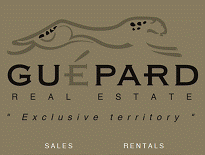Ukraine: Finance
Ukraine Finance Profile 2012
With an inherited Soviet framework that is ill-suited to the needs of a market economy, Ukraine has been slow to establish the necessary institutions to use its resources efficiently. Nevertheless the essential elements of free market competition have been established. Most price controls have been eliminated. However, in the summer of 2008 the government introduced price controls on staples to curb inflation, which were then vetoed by President Yushchenko.
Inconsistent legislation, anti-competitive practices and widespread corruption continue to impede growth. Direct and indirect state subsidies and the dominance of financial industrial groups result in unequal treatment of market participants and distort the allocation of resources. According to World Bank data, the informal economy’s share was 52.2% of gross national income (2003), while national authorities rated it at 34% of GDP (2004). Market entry barriers for small companies were lowered in 2005 by reducing the number of necessary licenses. In some economic spheres – especially heavy industry – strong vertical integration of production chains prevents the market entry of new companies.
Firms working in sectors characterized by monopoly, single-firm dominance, or oligopoly accounted for about 45% of total output in 2004. Many sectors with weak competition are in heavy industry or infrastructure (such as mining and telecommunications), where capital requirement creates high entry barriers.
The Anti-Monopoly Committee (AMC), established in 1994, monitors abuse of market power and prevents unfair competition. In recent years, the AMC has improved the quality of its operations and its reputation. It is vested with law enforcement and advocacy powers and has a wide jurisdiction over all business entities in Ukraine, as well as over all executive agencies below the highest organs of power. The actions of various state bodies, such as courts and the state property fund, are not synchronized and counteract the AMC’s efforts. Moreover, existing legislation (such as the Ukrainian Commercial Code) conflicts with the competition laws, and other legislation (such as control mechanisms for state aid) must be passed if Ukraine is to meet international norms. Further critical issues concern budget allocation, autonomy, investigative tools and transparency. Future challenges include competition advocacy, harmonization with the EU’s competition laws and the elimination of contradictory terms in Ukraine’s Commercial Code.
The Ukrainian economy is highly internationalized. In 2006, exports constituted about a third of GDP, imports more than 40%. According to the State Statistics Committee, Ukraine’s foreign trade balance was negative in 2007 at $10.6 billion and in 2008 at $18.5 billion, while exports and imports were growing. In 2008, exports to CIS countries amounted to 35.5% of all exports, while the EU accounted for 27.1%. Ferrous metals and associated products dominate Ukraine’s exports at 42% (2008). CIS countries account for 39.2% of all imports (mostly energy resources), while 33.7 % come from the European Union.
After years of negotiations and reforms, Ukraine finally joined the World Trade Organization (WTO) in May 2008. In 2007, Ukraine started negotiations on a new Association Agreement with the European Union, which is to include a deep Free Trade Area. The new agreement, which will replace the 1994 Partnership and Cooperation Agreement between Ukraine and the European Union, will also pave the way for extensive harmonization of Ukraine’s regulatory framework with that of the EU. Ukraine’s leaders have indicated willingness to start trade negotiations with Turkey, the Nordic countries, the United States, Canada and several other states.
Foreign trade is liberalized according to WTO rules. However, import tariffs of an additional 13% were introduced in February 2009 for a period of six months – mainly on food products to protect domestic producers and reduce inflation during the financial and economic crisis.
Ukraine has a two-tier banking system, with the independent National Bank of Ukraine (NBU) as a supervisory and regulating body, and commercial banks that serve economic actors and private households. In the period under review, Ukraine’s banking sector became much larger and more sophisticated. In March 2008, 176 banks maintained operations in the country. Foreign-owned banks accounted for 37% of banking system capital and have strengthened the sector. Transparency (in terms of ownership) has improved, and by the end of 2007, non-performing loans had decreased to about 13% of the total. The Ukrainian stock market is underdeveloped. Most investment is financed by bank credits, rather than from the sale of stocks.
Several banking system weaknesses were revealed and exacerbated by the global financial crisis in 2008. Credit growth, mainly to private households, had substantially accelerated and was mostly financed by international credits – a very lucrative business for Ukraine’s banks. Banks became increasingly dependent on foreign funding (mostly short-term borrowing), while possessing little equity capital. Due to the global liquidity crisis, Ukrainian banks and companies lost access to these overseas loans. Mass depositors’ demands for pre-term repayment of deposits led to intensive cash outflows in the banking system. The banks simultaneously increased interest rates under loan agreements and stopped issuing loans. In early 2009, credit rating agencies downgraded the country’s banks further. Several banks came under direct control of the NBU and received liquidity aid. At the time of writing, close to 40 banks appeared to hold the potential for collapse; others were supposed to receive state support for recapitalization. The European Bank for Reconstruction and Development (EBRD) announced it would provide a €500 million loan to recapitalize Ukrainian banks.
In February 2009, the Ukrainian government tried to restrict the independence of the NBU and threatened to dismiss the NBU’s head because he refused to finance the increased budget deficit of 2008, but Yushchenko did not consent. At the time of this writing, the conflict was ongoing.
























